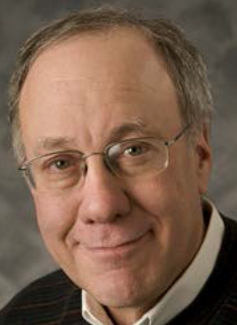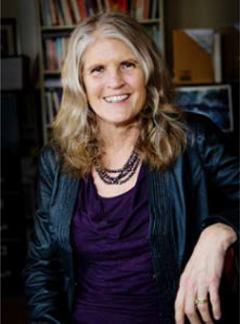UPDATES
Yasmeen Abu-Laban, professor of political science at the University of Alberta, has been appointed to a seven-year term as a Tier 1 Canada Research Chair.
Matt Guardino has been granted tenure and promoted to Associate Professor of Political Science at Providence College.
Therese Filicko, an associate professor of political science at Clark State Community College, has been appointed to the American Association of Community Colleges Faculty Advisory Council.
Cindy Kam, William R. Kenan Jr. Professor of Political Science at Vanderbilt University, will chair the new provost-appointed steering committee to guide actions and areas for study for an initiative focusing on women students, faculty, and postdocs.
John McManus, Curators’ Distinguished Professor of history and political science, and Michael Meagher, associate professor of history and political science both received the Outstanding Teaching Award for 2017–2018 from the Missouri University of Science and Technology.
Michelle Michot Foss, an economist and political scientist who has held leadership positions in energy and environmental research, consulting and investment banking, has been named a fellow in energy and minerals in the Center for Energy Studies at Rice University’s Baker Institute for Public Policy.
Christopher Moore, department chair and professor of political science at Bethel University, has received the university’s College of Arts and Sciences Faculty Excellence Award for Teaching.
Yascha Mounk has been appointed senior fellow at the SNF Agora Institute at Johns Hopkins, which includes an associate professorship at the School of Advanced International Studies.
Matthew Schmidt, University of New Haven associate professor of political science and national security, has received the William L. Bucknall Excellence in Teaching Award and an honorarium to support new teaching initiatives.
Emily Sydnor, assistant professor of political science at Southwestern University, has received a Sam Taylor Fellowship Grant for her research titled “Researching Attachments to American Political Institutions.”
Alvin Thornton, retired Howard University professor and senior academic adviser to the president, has been tapped to be chair of the school board in Prince George’s County, Maryland.
Keep PS Informed
Share your news and announcements with PS and our readers. Let us know about your new appointment, activity, event, or award by emailing PS editorial associate Nick Townsend at ntownsend@apsanet.org.
Banaszak to Reform Redistricting
Lee Ann Banaszak, professor and head of the Penn State Department of Political Science, is one of two educational representatives recently appointed by Pennsylvania Gov. Tom Wolf to serve on an independent commission studying redistricting reform.
The Pennsylvania Redistricting Reform Commission includes 15 members representing various government, education, and nonpartisan advocacy groups, as well as members of the state legislature. The commission will engage the public, redistricting experts, and other stakeholders in order to make holistic recommendations and emphasize the importance of fair elections.
Banaszak said she’s honored to be part of the commission and have the opportunity to improve an integral part of democracy in Pennsylvania.
“The electoral process is the cornerstone of our democracy, and redistricting shapes the degree to which elections are fair and equitable to all citizens,” she said. “I look forward to learning from the citizens of Pennsylvania, and hope my expertise and analytical insights can contribute to the development of recommendations and best practices that will serve all Pennsylvanians well.”
Congressional maps are drawn every 10 years following the completion of the US Census. In 2018, the Pennsylvania Supreme Court determined that the map drawn for the Commonwealth in 2011 was unconstitutional because of partisan gerrymandering, and a new map was drawn for the 2018 general election.
The Redistricting Reform Commission’s work will provide recommendations on how to implement long-term process changes ahead of the next map creation in 2021.
Banaszak’s research focuses on social movements and gender in politics, particularly the interconnection between political activism, political parties, government, and women’s movements. She has been a member of the political science faculty since 1994 and is an affiliate professor in women’s, gender, and sexuality studies.
Myerson Appointed to Distinguished Professorship at UChicago
Nobel laureate Roger Myerson has been appointed the inaugural David L. Pearson Distinguished Service Professor of Global Conflict Studies, joining The Pearson Institute for the Study and Resolution of Global Conflicts at the University of Chicago. The new appointment is in the Harris School of Public Policy, the Kenneth C. Griffin Department of Economics and the College.

Myerson, who earned The Sveriges Riksbank Prize in Economic Sciences in Memory of Alfred Nobel 2007 for his work in mechanism design theory, in recent years has focused his scholarship on state building, conflict resolution, and developing architectures for democracy which promote accountability and peaceful societies.
“The appointment builds on Roger’s engagement with and commitment to the mission of The Pearson Institute, where he has served as a faculty affiliate since its founding. In his new role, Roger will bring his field-defining research in economics and political science to matters of global conflict and resolution,” said Harris Dean Katherine Baicker in announcing Myerson’s appointment.
Announced in the fall of 2015, The Pearson Institute, along with The Pearson Global Forum, are the first research institute and annual global forum of their kind devoted solely to the quantitative study and resolution of global conflicts. They were made possible by a landmark gift from The Thomas L. Pearson and The Pearson Family Members Foundation.
“Roger Myerson is one of the most distinguished economists of his—or any other—generation. For several years, he has focused on thinking about the national security problems facing the U.S. and the governance problems facing fragile states,” said James Robinson, the Reverend Dr. Richard L. Pearson Professor of Global Conflict Studies, University Professor and The Pearson Institute Director. “His work addresses such questions as what kind of order should U.S. forces or domestic politicians try to foster in Iraq, Afghanistan, Pakistan, the Philippines, or other weak and conflicted states. Roger’s research on political institutions and state building is motivated by these contemporary policy challenges and embodies The Pearson Institute’s mission to unite research and policy.”
Myerson’s appointment is one of four named professorships at The Pearson Institute. He joins Robinson; Christopher Blattman, the Ramalee E. Pearson Professor of Global Conflict Studies; and Oeindrila Dube, the Philip K. Pearson Professor of Global Conflict Studies.
“Scholars at The Pearson Institute bring rigorous analysis to fundamental questions about global conflict and its resolution, using theoretical and empirical methods from economics and political science,” Myerson said. “The broad range of expertise that can be found among the members of The Pearson Institute, together with colleagues in the Harris School and throughout the University of Chicago, provide a unique environment for this vital research. I am very excited now to be able to expand my involvement with The Pearson Institute and the Harris School.”
Myerson served as the Glen A. Lloyd Distinguished Service Professor in the Griffin Department of Economics, Harris School of Public Policy and the College. His appointments in and active engagement with the Kenneth C. Griffin Department of Economics and the College will further strengthen collaborations among these academic units.
Martin Receives NEH Fellowship
Cathie Jo Martin, director of the Center for the Study of Europe at the Frederick S. Pardee School of Global Studies and professor of political science at Boston University, has been awarded a fellowship from the National Endowment for the Humanities (NEH) for research and writing leading to publication of a book on the influence of literature on British and Danish educational systems between 1700–1920.

Martin’s most recent article (“Imagine All the People,” World Politics, July 2018) uses machine learning processes to analyze large corpora of British and Danish literature and to uncover the deep cultural roots of education reform. British literary narratives highlight benefits of schooling for individual self-growth (for upper/middle classes). The individualistic cultural slant to British stories have justified the neglect of marginal youth, because celebration of those conquering challenges with self-initiative make it easier to blame those who fail and to dismiss the youth that are left behind. Danish narratives justify schooling as a social investment to strengthen society and have driven Danish investments in educational innovations. Neglect of low-skill youth has been viewed as a waste of societal resources and a threat to social fabric. High socioeconomic equality has been a fortuitous but felicitous side effect of this mandate to educate all the people.
Martin received the $30,000 fellowship for the project entitled “Literature, Society and Education in Britain and Denmark, 1700–1920.” Martin’s fellowship is one of only 84 awarded by the NEH in this cycle.
NEH is an independent federal agency created in 1965. It is one of the largest funders of humanities programs in the United States. NEH promotes excellence in the humanities and conveying the lessons of history to all Americans. The Endowment accomplishes this mission by awarding grants for top-rated proposals examined by panels of independent, external reviewers. The grants and fellowships strengthen teaching and learning in schools and colleges, facilitate research and original scholarship, provide opportunities for lifelong learning, preserve and provide access to cultural and educational resources, and strengthen the institutional base of the humanities.
Martin is a professor of political science, director of the Center for the Study of Europe, president of the Comparative Politics Section of APSA, and former chair of the Council for European Studies. Her book with Duane Swank, The Political Construction of Business Interests (Cambridge 2012) received the APSA Politics and History book award, and she has held fellowships at the Radcliffe Institute for Advanced Study and the Russell Sage Foundation, among others.
Haynie Named Executive VP and Provost at LSU
Stacia Haynie has been named as the university’s next executive vice president and provost. She previously served as LSU interim executive vice president and provost.
Haynie has been an active member of the LSU community since joining the Department of Political Science in 1990. She served as dean of the College of Humanities & Social Sciences before being named interim executive vice president and provost in April 2018.
“I am excited to continue to work with President [F. King] Alexander and the LSU leadership team as executive vice president and provost,” Haynie said. “I have never been more optimistic about LSU than I am right now. The hard work of our stellar faculty, staff and students define this great institution, and I look forward to working together to enhance our student success and the scholarly and creative work of our faculty.”
Haynie studies judicial politics with special emphasis on comparative appellate court decision-making. With support from the National Science Foundation and the Louisiana Education Quality Support Fund, Haynie and her colleagues C. Neal Tate of Vanderbilt, Reginald Sheehan of Michigan State University and Donald Songer of the University of South Carolina created a 10-country appellate courts data set. Haynie has particular expertise in the legal systems of South Africa, the Philippines, and India. Her studies also include civil trial court decisions in US state courts.
Haynie taught courses in judicial politics, American constitutional law, comparative judicial politics and American public law. She has also been awarded the Arts & Sciences Professor’s Award for Distinguished Scholarship, the LSU University Alumni Association Faculty Excellence Award, and the LSU College of Arts & Sciences Advisory Council Award for Excellence in Undergraduate Teaching.


